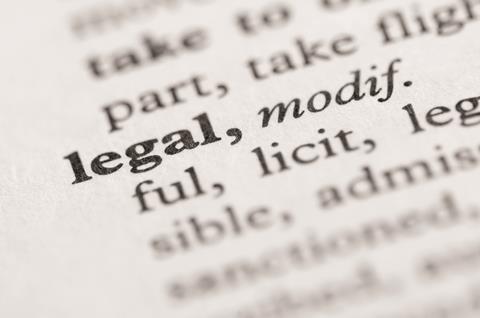Another case in which the court excluded expert evidence
The case
Patricia Andrews and Others vs Kronospan Ltd [2022] EWHC 479 (QB)
Before Senior Master Fontaine
In the Queen’s Bench Division
Judgment delivered 7 March 2022
The facts

During 2017 some 159 residents of Chirk in north Wales commenced group litigation proceedings alleging public and/or private nuisance due to the noise, odours and emissions – primarily the escape of dust particles – emanating from Kronospan’s wood processing and manufacturing plant in the town.
The court’s directions provided for expert evidence including in relation to dust analysis and dust monitoring, in which respect the residents appointed Dr Nigel Gibson and Kronospan Dr Hugh Datson. In accordance with the court’s directions, Dr Gibson and Dr Datson participated in a series of discussions and meetings over the period May to November 2021, but these did not lead to the production of an agreed joint statement.
During November 2021, it became apparent to Kronospan that there had been contact between Dr Gibson and the residents’ solicitors in connection with the joint statement discussions. Following further enquiries, the residents’ solicitors disclosed copies of emails and attendance notes recording their exchanges with Dr Gibson during May, June and November 2021 regarding the joint statement but claimed privilege in respect of other exchanges. The disclosed material showed that without telling Dr Datson, Dr Gibson had invited and received comments on the joint statement drafts from the residents’ solicitors.
In January 2022 Kronospan applied for an order revoking the residents’ permission to rely upon the expert evidence of Dr Gibson on grounds that this was the only possible sanction where Dr Gibson had acted in such a way as to demonstrate that he was not truly independent but rather had been acting as advocate for the residents in clear breach of the Civil Procedure Rules (CPR) Part 35, Practice Direction 35 and the court’s orders.
Although accepting that serious transgressions had occurred, the residents contended that this outcome would be entirely disproportionate as it would lead to significant additional costs and delay while a replacement expert was sourced and brought up to speed.
The issue
Given the residents’ concession that serious transgressions had occurred, what, if any, was the appropriate sanction?
The decision
The senior master considered that the residents’ reliance upon BDW Trading Ltd vs Integral Geotechnique (Wales) Ltd [2018] EWHC 1915 (TCC) – in which no sanction was applied – was misplaced since in that case there had been only one communication between the solicitors and the expert. Here, the exchanges had been almost continuous, falling well outside the exception provided for in paragraph 13.6.3 of the Technology and Construction Court Guide.
While the bulk of the residents’ solicitors’ 68 identifiable comments concerned typographical and formatting issues, there were at least 16 comments comprising advice and suggestions as to the content of the joint statement. Albeit that these comments appeared to have informed only one change of position in the joint statement, there was no way of knowing this for certain given the residents’ claim for privilege in respect of other exchanges and in the absence of any explanation from Dr Gibson.
The senior master observed that the exchanges between the residents’ solicitors and Dr Gibson suggested that he regarded himself as an advocate for the residents – looking for ways in which to support their case – rather than as an independent expert whose primary obligation was to the court. Therefore, applying the overriding objective, the senior master concluded that the serious transgressions by the residents’ solicitors and Dr Gibson were such that the court could have no confidence in Dr Gibson’s ability to act in accordance with his obligations as an expert witness. Hence it was appropriate, and not disproportionate, to revoke the residents’ permission to rely upon Dr Gibson’s evidence.
The senior master nevertheless granted leave to the residents to appoint a replacement expert on the grounds that there was still time to do so where the relevant data had already been collated and analysed and where the additional delay and costs were the inevitable outcome of Kronospan’s application.
Commentary
The senior master emphasised that the integrity of the expert discussion process must be preserved so that the court and the public can have confidence that the court’s decisions are made on the basis of objective expert evidence, particularly where the evidence is highly technical in nature so that the court is heavily reliant on the expert evidence being untainted by subjective considerations.
Paragraph 13.6.3 of the TCC Guide permits solicitors to intervene in the joint statement only if it appears likely that the draft may mislead the court and such intervention must be addressed to both experts. Here, the ongoing and clandestine collaboration between Dr Gibson and the residents’ solicitors justified the drastic sanction.
Ted Lowery is a partner in Fenwick Elliott


























No comments yet